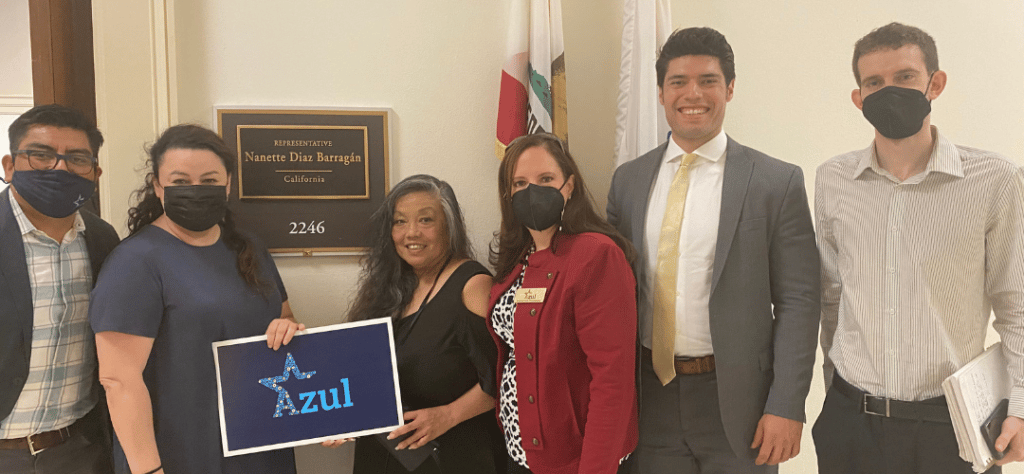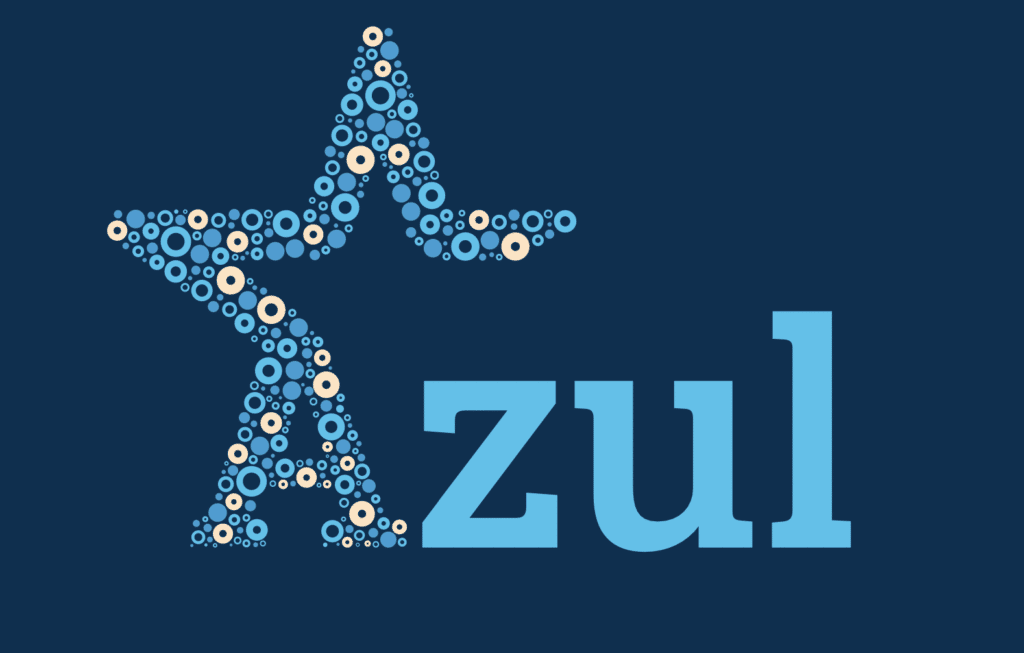
Healing Outdoor Trauma While Advancing Coastal Access & Ocean Policy
By Carlos Ochoa
This Hispanic/Latinx Heritage Month, Green 2.0 is featuring Azul’s National Policy Manager Carlos Ochoa. The Washington, D.C.-based Ochoa offers a glimpse into his work alongside Latinx communities, family background, and why he loves his culture.
Q: What inspired you to work on ocean conservation issues?
For me, it’s all about families – our relationships with one another and the Earth. I’m the son of working-class Mexican immigrant parents, a single mother who loved nature, and this experience greatly influenced my desire to join a Latinx-led and serving organization. With Azul, I work on issues directly impacting communities like mine and work in a space of belonging, where our growing agency and political power is recognized and appreciated.
Q: Can you share more about your relationship with the outdoors?
My family rarely had the opportunity to go to the ocean, but the experience was so memorable when we were able to take annual trips to the beaches of Los Angeles. For the most part, these places felt special. However, I also experienced instances of trauma, and know others have too while outdoors.
When I was young, my mother took my siblings and I to the park for a picnic. While we were setting up, a man nearby yelled racist epithets at us, going so far as to threaten to hurt my youngest sibling if we did not leave. I can remember crying to my mother. I told her that I was afraid the man was going to hurt us. She comforted me, responding: “He’s gone now. Your family is here.” The fear and alienation lingered for a long time.
This is an example of how inequitable access to the outdoors is a salient issue in Latinx communities, as we carry trauma and threats with us and experience them on trails, beaches, at parks and in other places.
No family should question being welcome and safe in a public, outdoor environment. But this was also a moment for me that validated two beliefs: nature is for everyone of all backgrounds, and it has the power to heal emotional wounds.

Q: How does Azul center environmental justice in your conservation work?
Azul is no newcomer to environmental justice or equity issues plaguing the Latinx community; our achievements over the last 11 years are evidence of our team’s deep expertise and the vision set out by our executive director and founder, Marce Gutierrez-Graudiņš.
In 2020, Azul supported policy to conserve 30 percent of all land and ocean areas in California by 2030, with a commitment to equity and access principles to those conserved areas. This preceded President Biden’s announcement of a national 30×30 campaign, and in many ways, influenced the federal effort. In my role as National Policy Manager, I engage federal stakeholders on Azul’s policy recommendations, and share our experience in equity and environmental justice.
Azul was also instrumental in organizing support for a single-use plastic bag ban in 2014 by leveraging a culturally-relevant campaign that showcased the Latinx community’s prevalent use of reusable bags. More recently, we published a report in collaboration with the United Nations Environment Programme on the environmental justice impacts of plastic pollution on communities of color, illustrating how the entire life cycle of plastic production detriments communities of color in the U.S. and abroad.
These accomplishments, coupled with our work at the federal level (like the recently released results of a national poll, the first of its kind, assessing the attitudes of Latinos in the U.S. and the ocean), exemplify the commitment Azul has to advocate for policies that advance the interests of our community. My life story, and the challenges I’ve had to overcome, is a story that is still being written. In ways, I truly believe my time with Azul is a reflection of the work that many others like me are continuing to fight for.
Q: How are you celebrating Hispanic/Latinx Heritage Month?
I plan to visit the Molina Family Latino Gallery at the National Museum of American History—the Smithsonian’s first gallery dedicated to the Latinx experience and Latinx contributions to the United States. Visiting the gallery is the best way for me to feel connected to my community while celebrating the remarkable contributions our community has made to the country.

For more information on Azul and their ocean conservation efforts, visit their website at https://azul.org/en/.
